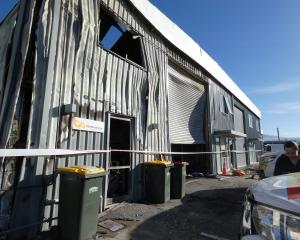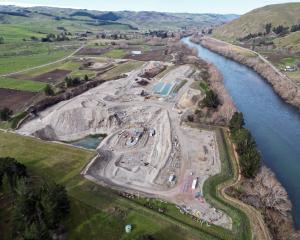An acute shortage of suitable accommodation for seasonal workers during the Central Otago fruit and grape harvest will put the brakes on those industries growing in the next five years.
That was one of the findings of ''the most comprehensive'' Central Otago labour market survey focusing on the horticulture and viticulture industries.
The report, made public yesterday, was done for the Central Otago Labour Market Governance Group.
The Ministry of Social Development provided $40,000 funding for the survey, which was carried out by Martin Anderson, of Cromwell, and Tara Druce, of Alexandra.
Group chairman John Lane, of Roxburgh, said the report was ''the most in-depth, comprehensive picture'' of workforce issues facing those sectors in the next five years.
The fruit growers interviewed and surveyed represented close to 100% of the total hectares in horticulture, the report said.
The response from grape-growers represented about 79% of the total hectares planted in grapes in Central Otago, Queenstown and Wanaka.
''That means the big picture we now have of those industries is pretty spot-on,'' Mr Lane said.
The horticulture sector was predicting strong growth in the next five years in all fruit types but particularly in cherries and apples.
Cherry plantings were expected to increase by 34%, with 65% of the new plantings in the Cromwell area and 29% in Alexandra and Earnscleugh.
Although winegrowing growth would be ''modest'', significant new plantings were predicted for the 2018-19 season, the report said.
January was the peak employment period, with 3728 workers needed, mostly in the fruit industry, while 1877 workers were needed at the height of the grape harvest in April.
Backpackers and Recognised Seasonal Employment (RSE) workers from the Pacific Islands were the mainstay of both industries, the report said.
There was already an acute shortage of affordable accommodation for seasonal workers and that would be a barrier to the growth of those industries.
Low-cost, high-density housing was needed, particularly in Cromwell and Alexandra.
Mr Lane said the governance group would be discussing the issues raised with a wide range of agencies and organisations.
The horticulture and viticulture report is the first stage of a wider labour market survey and will be followed by interviews and surveys targeting other key sectors relying heavily on seasonal workers, such as the hospitality sector.
Key recommendations
• The governance group to talk to industry groups and local government about addressing the predicted increase in demand for accommodation - an extra 600 beds needed by 2018-19.
• Short-term training needs to be reviewed with a range of training groups and industry organisations, including the Otago Polytechnic.
• All stakeholders to recognise the importance of backpackers as a source of seasonal labour.
• Some form of initiative between the industry and Central Otago District Council to ensure the ongoing supply of backpackers - could include social media campaigns.
• Investigation into why large number of backpackers were in Central Otago during 2014-15 season.
• Industry groups to work with Central Otago and Queenstown Lakes District Councils to promote the area as a workplace.












